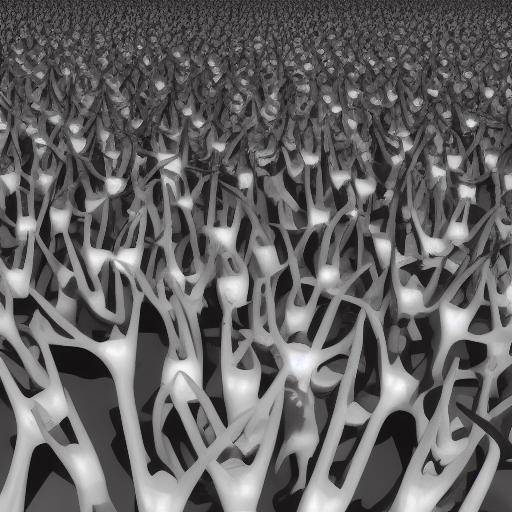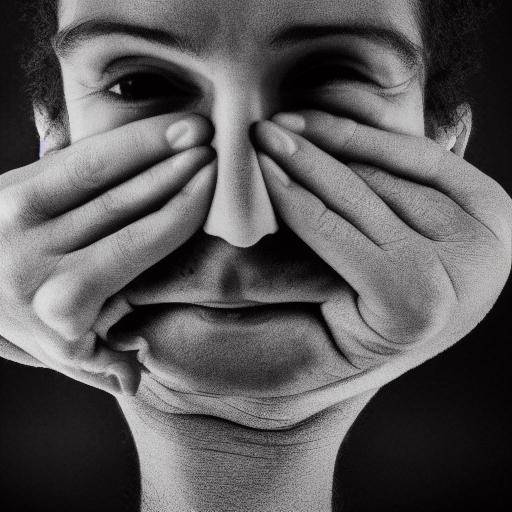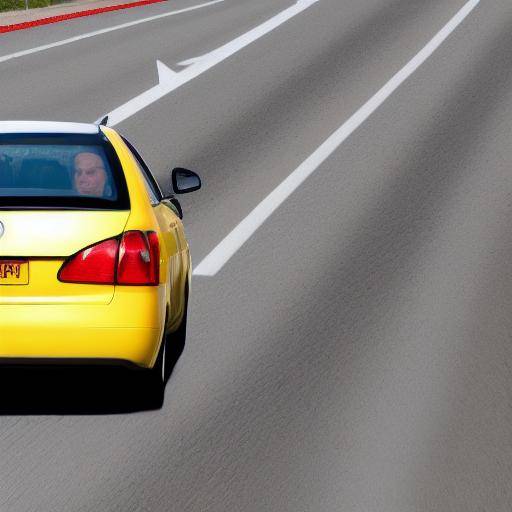
Mental flexibility is a cognitive ability that allows us to adapt to changing circumstances, to think in a versatile way and to face agility challenges. This capacity not only influences our decision-making, creativity and problem solving, but also has a profound impact on our emotional well-being. One of the fundamental pillars that is influenced by mental flexibility is the development of patience, a virtue that, in everyday life, helps us to manage stress, improve interpersonal relationships and achieve our goals with determination. In this article, we will explore in depth the impact of mental flexibility on the development of patience, its historical relevance, practical applications, future trends and much more.
Introduction
The ability to be mentally flexible and cultivate patience are fundamental skills that allow us to face the challenges of life with resilience and tranquility. In the current era, characterized by constant changes and an accelerated pace, these skills acquire a critical importance for our emotional well-being and personal development. In this article, we will explore the interconnection between mental flexibility and patience, providing an integral vision from its historical origins to its influence on our daily lives. Throughout this journey, we will discover how the cultivation of mental flexibility can strengthen our patience, thus contributing to greater emotional well-being and a fuller life.
History and Background
Mental flexibility and patience have been relevant aspects of various philosophical and cultural traditions throughout history. From the teachings of Buddhism on impermanence and patience, to Western philosophical approaches that emphasize adaptability and ability to tolerate uncertainty, these skills have been valued and developed in very diverse contexts.
Greek philosophy, for example, addressed patience as a virtue that entails resistance against adversity and ability to maintain calm in challenging situations. In the field of mental flexibility, the evolution of psychology and neuroscience has provided a deeper understanding of how our minds can adapt and change over time.
The interconnection between mental flexibility and patience is reflected in significant historical episodes, where prominent figures have demonstrated these skills in their actions and teachings. In times of crisis, leaders like Mahatma Gandhi have demonstrated a remarkable ability to maintain patience in extremely challenging situations, which in turn requires mental flexibility to adapt to changing circumstances and find unconventional solutions.
Deep analysis
The development of mental flexibility and patience not only has deep historical roots; it also has significant implications in our daily lives. Mental flexibility allows us to see situations from multiple perspectives, accept ambiguity and adapt to new circumstances with an open mind. This capacity is closely related to patience, as the ability to maintain calm and compost in the midst of uncertainty is a manifestation of mental flexibility.
Recent psychological studies have shown that mental flexibility is closely related to emotional well-being. People who can adapt flexibly to everyday challenges tend to experience lower levels of stress and anxiety, which in turn positively influences the ability to be patients in demanding situations. This interrelationship between mental flexibility, patience and emotional well-being emphasizes the importance of cultivating these skills in a constantly changing world.
Comprehensive review
The practical application of mental flexibility and patience encompasses a wide range of contexts, from working environments to personal relationships and education. In the workplace, mental flexibility translates into the ability to adapt to new technologies, changing business models and versatile work roles. In turn, patience plays a crucial role in managing tight deadlines, resolving interpersonal conflicts and facing unexpected setbacks.
In the area of personal relationships, mental flexibility allows us to understand and accept individual differences, which in turn encourages patience in dealing with disagreements and conflicts. In the educational field, fostering mental flexibility in students allows them to face academic challenges with resilience, while patience gives them the ability to persevere in the learning process, even when they face obstacles.
The development of mental flexibility and patience not only benefits at the individual level, but also contributes positively to social dynamics and collective well-being. In environments where mental flexibility and patience are valued and encouraged, an enabling environment is promoted for the resolution of collaborative problems, effective conflict management and personal and professional growth.
Comparative analysis
By comparing mental flexibility and patience, we can identify similarities and differences that help us to better understand their interconnection. Both mental flexibility and patience require an open-minded approach and the ability to adapt to challenging situations. Both skills promote resistance to adversity and the development of a positive attitude even in difficult times.
However, mental flexibility focuses on cognitive adaptability, the ability to think versatilely and find creative solutions, while patience is more specifically about the ability to maintain calm and serenity in stressful and demanding situations. Despite these differences, both skills complement each other, as mental flexibility facilitates the development of patience by allowing us to see situations from multiple perspectives and find alternative approaches to confront challenges.
Practical Tips and Accessible Advice
Promoting mental flexibility and patience is essential for our personal development and emotional well-being. Here are some practical tips and actions we can take to cultivate these skills in our daily lives:
- Practice full attention: Full attention helps us to develop mental flexibility by being present at the moment and observing our thoughts without judging.
- Fostering resilience: Learning to adapt to unexpected changes strengthens our mental flexibility and helps us develop patience in challenging situations.
- Cultivate empathy: Understanding the experiences and perspectives of others allows us to exercise mental flexibility and foster patience in our interpersonal interactions.
- Practice troubleshooting: Addressing challenges creatively and finding innovative solutions promotes mental flexibility and patience in the search for effective results.
- Learn how to handle stress: Developing techniques to manage stress, such as conscious breathing and muscle relaxation, contributes to mental flexibility and patience in times of tension.
Industry Perspectives and Expert Reviews
Experts in psychology and personal development agree that mental flexibility and patience are fundamental skills that directly influence our emotional well-being. According to clinical psychologist Dra. Elena Gómez, "The cultivation of mental flexibility and patience allows us to face the challenges of life with greater tranquility and mental clarity, which in turn contributes to greater satisfaction and emotional well-being."
From a business perspective, Fernando Ruiz, CEO of a consulting firm, emphasizes the importance of promoting mental flexibility and patience in the working environment, stating that "the teams that possess a flexible mentality and the ability to maintain calm in challenging situations are more effective and resilient."
These expert opinions underscore the relevance of considering mental flexibility and patience as central elements for personal development, the working environment and emotional well-being in general.
Case Studies and Real Life Applications
To illustrate the practical application of mental flexibility and its interrelationship with patience, consider Ana, an entrepreneur who faces significant changes in her industry due to technological advances and changes in consumer preferences. Thanks to her mental flexibility, Ana manages to adapt her business model, exploring new strategies and opportunities for growth, and exercising patience while waiting to see the results of her efforts.
Another notable example is that of Miguel, a student who is preparing for a rigorous academic examination. Their ability to remain calm and persevere in their studies, even when they face obstacles and setbacks, demonstrates both their mental flexibility and their patience in action.
Future Trends and Predictions
As we enter a constantly changing global environment, mental flexibility and patience are expected to be increasingly valued and sought-after skills. With the advancement of artificial intelligence and automation, human ability to adapt creatively to new circumstances will be fundamental. In addition, in an interconnected and changing world, the ability to maintain calm and patience in the midst of uncertainty will become a precious asset both individually and organizationally.
It is expected that personal and professional development programmes will appear focused on strengthening mental flexibility and patience, offering practical tools and strategies for their cultivation. The integration of these skills into educational and labour environments is also expected to become a priority for building resilience and emotional well-being.
Conclusion
Mental flexibility and patience are attributes that, together, have a significant impact on our emotional well-being, resilience and ability to face the challenges of life with tranquility and determination. By understanding the interrelationship between these skills, we can consciously cultivate them, both individually and collectively, promoting a more balanced and satisfying lifestyle.
As we move towards a future characterized by uncertainty and constant transformation, mental flexibility and patience are built as fundamental pillars in the pursuit of lasting emotional well-being. By adopting practical strategies for their development and fostering their implementation in various aspects of our lives, we will be strengthening our capacity to meet the challenges with grace, wisdom and serenity.
Frequently asked questions
1. How does mental flexibility influence decision-making?
Mental flexibility allows us to consider multiple perspectives and solutions, which enriches the decision-making process. By adopting a flexible mentality, people can consider creative alternatives and assess risks more fully, which positively influences the quality of their decisions.
2. What is the relationship between patience and resilience?
Patience and resilience are closely interconnected, as the ability to maintain calm and persevere in difficult times is essential to overcome obstacles and recover from adversities. Patience strengthens resilience by providing a resilient attitude to uncertainty and adversity.
3. How can mental flexibility be fostered in working environments?
In working environments, fostering mental flexibility involves promoting an environment where different points of view are valued, enhancing creativity and encouraging adaptation to changes. Organizations can offer training in solving creative problems, encourage participation in multidisciplinary groups and establish processes that encourage experimentation and innovation.
4. Is there any relationship between mental flexibility and emotional intelligence?
Mental flexibility is a key component of emotional intelligence, as it implies the ability to self-regulate emotions, adapt to changing situations and maintain a balanced perspective in the midst of emotional challenges. The ability to understand and manage our emotions is essential to cultivate mental flexibility.
5. How can mental flexibility influence emotional well-being in the workplace?
In the workplace, mental flexibility can influence emotional well-being by allowing employees to adapt to organizational changes, face labor challenges with agility and promote a working climate that values the diversity of ideas and approaches. This can generate a more positive and collaborative working environment, which in turn contributes to emotional well-being.
6. What is the role of mental flexibility and patience in stress management?
Mental flexibility and patience play a crucial role in stress management by promoting a calm and responsive attitude towards stressful situations. The ability to adapt flexibly and maintain compost in the midst of stress facilitates the effective management of emotional tensions and the search for constructive solutions.
Conclusion: The development of mental flexibility and patience is fundamental to our emotional well-being and our ability to meet the challenges of life with serenity and determination. By understanding their interconnection, their history, practical applications and future trends, we can consciously cultivate these skills to promote a more balanced and satisfying lifestyle.
This article has explored in depth the interrelationship between mental flexibility, patience and emotional well-being, providing an integral vision from its historical origins to its practical applications in everyday life. By understanding the impact of mental flexibility on the development of patience, we can move towards a more balanced, resilient and rewarding life.






















































